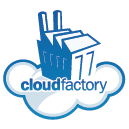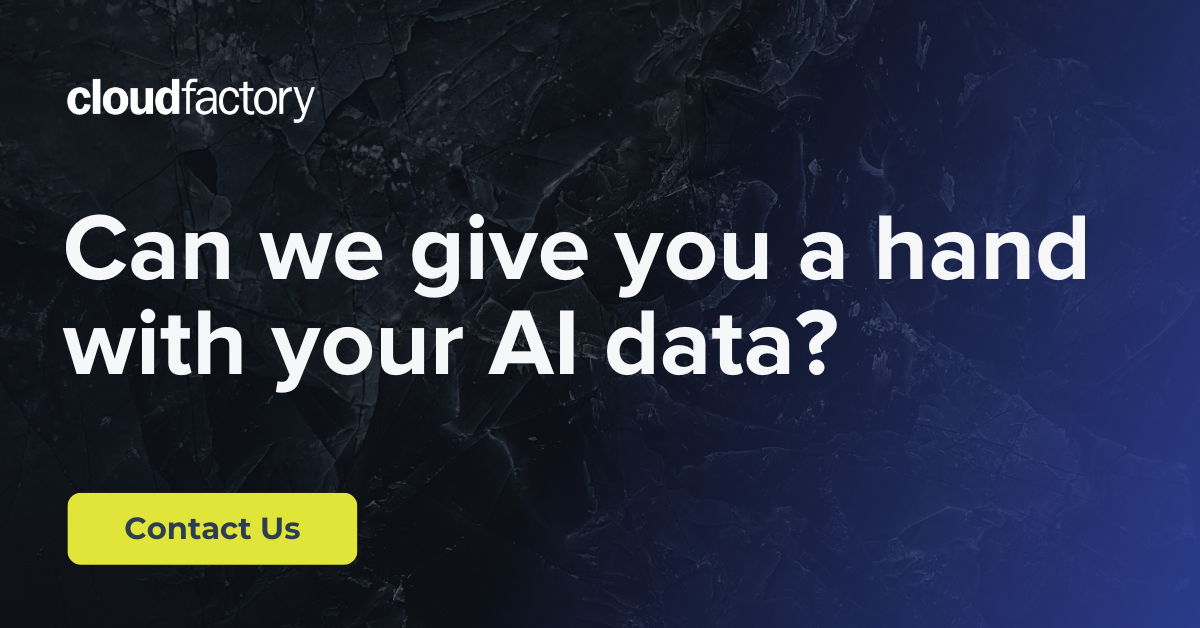When people think healthcare AI applications, typically computer vision for radiology, surgical robotics, and cellular pathology is top of mind. But with the vast amount of text generated, there has been a growing need to more quickly and easily extract and analyze valuable insights from the unstructured data in clinical notes, electronic health records (EHRs), and other healthcare documents.
It’s not surprising that natural language processing (NLP) has been gaining significant attention in the healthcare industry in recent years. NLP technologies enable computing systems to understand, interpret, and provide guidance to support positive patient outcomes while improving administrative efficiencies.
A study from the National Library of Medicine indicates that the "decisions made in medical facilities are highly data-driven. The results of the study confirm what has been analyzed in the literature that medical facilities are moving towards data-based healthcare, together with its benefits."
In this blog post, we'll explore how NLP is being used in the healthcare industry, including healthcare documentation, clinical decision support, speech recognition for electronic health records, and other applications.
1. Healthcare Documentation
Healthcare documentation is vital in providing quality patient care and facilitating clinical research. With the help of NLP, healthcare professionals can automate and streamline the process of managing patient data, resulting in improved accuracy, efficiency, and patient outcomes.
Three examples of healthcare documentation that can benefit from NLP are clinical documentation, data mining for patient care, and matching patients for clinical trial matching.
Clinical Documentation
Clinical documentation includes creating and managing medical treatment records, medical trials, clinical tests, and contributing to registries for public health agencies to manage large patient populations. Accurate and timely documentation of patient information in EHRs is critical for quality of care both within and across medical facilities but is often time-consuming to create accurately.
NLP technology can help to automate getting value from clinical documentation by extracting relevant information from unstructured text data. NLP algorithms can identify medical terms, diagnoses, and treatment plans from clinical notes to automatically populate them into EHRs.
Patient Care Data Mining
Patient care research for similar symptoms and effective treatments is essential for providing quality health care. However, analyzing large volumes of patient data can be challenging, particularly in critical and emergency care situations when urgency can result in missing important information, which can, in turn, negatively impact patient outcomes.
NLP technology helps to analyze and extract insights from unstructured patient data such as clinical notes and EHRs. NLP algorithms can identify patterns and relationships in the data, providing valuable insights into patient diagnoses, treatment efficacy, and healthcare utilization. This improves patient outcomes, optimizes treatment plans, and reduces subjectivity in decision-making.
Clinical Trial Matching
Matching patients with appropriate clinical trials is a crucial aspect of clinical research. However, the high number of trials in progress at any point in time, coupled with understanding the specific criteria for each trial, makes it challenging to identify eligible patients.
NLP technology can help to accelerate the process of clinical trial matching by automatically extracting relevant information from EHRs and identifying potential trial participants. NLP algorithms can analyze patient data such as demographics, medical history, and lab results to identify eligible patients and notify physicians about ongoing clinical trials. This can help advance medical research and increase care options for patients not benefiting from current treatment options.
2. Clinical Decision Support
Clinical Decision Support (CDS) systems are designed to enhance patient safety and improve healthcare quality by providing filtered, organized, and timely information about a specific patient’s condition. However, traditional CDS systems can be limited in interpreting unstructured data such as clinical notes and speech from physicians or patients.
NLP technology can help enhance CDS systems by extracting key information from unstructured text data. NLP algorithms can identify medical terms, diagnoses, and treatment plans from clinical notes and provide physicians with useful real-time insights into patient care. This enables them to make informed decisions quickly and take action.
3. Speech Recognition
Complete and accurate EHRs are essential for providing comprehensive care, especially when patients are seen by more than one care provider. But physicians struggle with balancing the time required for patient visits with the administration of documenting conditions and diagnoses.
NLP technology can support speech-to-text dictation identifying key information for entries of medical terms, diagnoses, and treatment plans into EHRs. NLP speech recognition algorithms can also support hospital administration in documenting staffing, scheduling, and requirements for medical supplies. This can help to reduce staff workload and costs.
4. Virtual Chatbots
Virtual chatbots have been used in healthcare for some time now, and NLP plays an important role in their success. These chatbots can be used to answer patient questions, provide information about medical procedures, assist with scheduling appointments, and triage symptoms to route patients to the right provider. NLP algorithms enable these chatbots to understand the intent behind patient queries and respond in a way that is natural and easy to understand.
One of the most significant benefits of virtual chatbots is that they can be available 24/7, making them an excellent resource for patients who need quick answers to their questions. They can also help reduce the workload of healthcare professionals, allowing them to focus on more complex tasks that require their expertise.
5. Patient Sentiment Analysis
Another application of NLP in healthcare is patient sentiment analysis. This technique involves analyzing patient feedback, such as reviews, social media posts, and survey responses, to gain insights into their experiences with healthcare providers and services. NLP algorithms can identify the emotions and attitudes behind patient feedback, enabling healthcare providers to identify areas for improvement and address patient concerns.
By using patient sentiment analysis, healthcare providers can improve patient satisfaction, reduce the risk of negative reviews, and gain valuable insights into patient experiences. This information can also be used to develop targeted marketing campaigns, improve communication strategies, and enhance the overall patient experience.
6. Root Cause Analysis
NLP can also be used to analyze medical records of geographic regions, racial groups, and population sectors. Predictive analysis of large datasets of medical records enables public health organizations to recognize health discrepancies and gain insights into disease prevalence, treatment outcomes, and other factors.
Analysis using NLP algorithms can help assess the root causes of recurring patients’ health difficulties or poor outcomes and identify trends in disease prevalence. This information can be used to develop targeted prevention and treatment strategies that consider the unique needs of different patient populations.
The importance of accuracy for NLP algorithms
Natural language processing applications for patient care are not only a significant revenue opportunity for developers but also have the potential to enable more effective clinical care and improved outcomes. But achieving these goals requires accurate data for training the NLP algorithms.
Human-in-the-loop text and audio tagging provide the understanding and context these algorithms need to correctly transcribe and analyze medical data. The speed and accuracy of NLP algorithms give medical professionals the accurate diagnosis and treatment information they need to spend more time with patients and less time on administration.
CloudFactory offers a scalable, managed workforce with experience in both text and audio tagging for NLP applications. We train our data analysts to combine your healthcare application context with an understanding of language, syntax, and sentence structure to accurately parse and tag written text and audio according to your specifications.
We'll help advance your model’s ability to extract meaning from raw audio and text data to bring your NLP project to market faster in compliance with HIPAA security requirements.



